Why nothing makes us happy, according to neurophysiologist
The chemistry of joy, why being a quiet nuisance, how to sleep correctly and why one should give up on children’ homework. Part one

In a podcast of Realnoe Vremya, neurophysiologist Yelena Pantyukhina, a teacher, creator of educational events, lecturer, co-author of Immersion Neuropedagogics course talks with Anna Saushina about why nothing makes us happy. In the first part of the transcript of the talk, read why we need endorphins, why it is necessary to “bury” all the adrenaline, if we are really divided into night owls and early birds, why the elderly wake up at an ungodly hour, the harm of the big city for the human and how we make our own children unhappy hard-workers.
“We need some rest now like never before”
Good evening, Yelena. The topic for today’s discussion is for everybody — “Why does nothing make us happy?” Let’s start with this question: why does nothing make us happy and what’s the mechanism of this feeling from a perspective of neurophysiology?
Firstly, joy is a subjective option. Secondly, it depends on how many neurotransmitters we have — serotonin, dopamine and endorphin. Serotonin gives us a feeling of anticipation of that true joy we all aspire to have. Dopamine allows achieving goals and finding energy to do something over and over, gives us the feeling of the “hero’s journey.” And endorphins give us that joy, amazement, euphoria.
Endorphins are released into the interstitial space of the nervous system only when we get a very sudden, new and very successful experience. Or we have been going towards something for a very long time and finally we managed to do it. Or like an athlete: here he or she is finally on the Olympic podium after many years of training. Most women experience this during the labour.
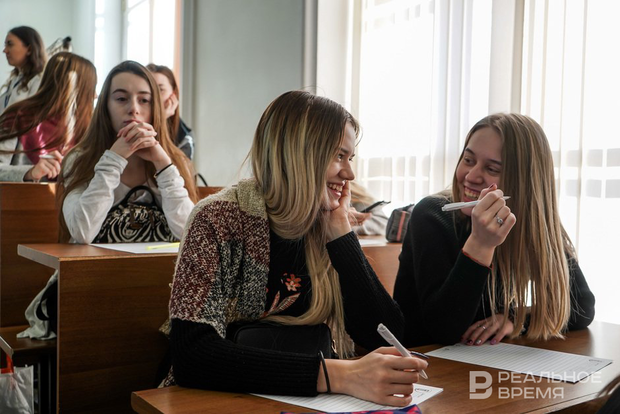
Mostly endorphins are produced in the brain so that at the moment of their release we forget all bad things that happened to us and remember only successful experience. If you once are running from a lion in the savannah and you manage to do it, you will have so much joy in your brain that you won’t confuse this feeling with anything else. Here you have both endorphins and dopamine — it is going to be such an emotional cocktail!
I wouldn’t like such endorphins for sure.
Let’s move on. Neurotransmitters are proteins that are constantly built by the organism. Their quantity is limited: when they are released from the cell, they are disposed of, while their by-products are eliminated. The synthesis of neurotransmitters happens mainly at night when the nervous system is off — cells recovering the balance at this time. This can be compared to the pantry at home: it is in the fridge, we eat it when needed. And guests came over all of a sudden and ate everything. This happens when we experience euphoric joy. Neurons had been accumulating neural mediators and then released everything at once. Now they need time to restore the supply.
Now imagine that you experience such events every day. But we cannot get the same emotional experience if, figuratively speaking, your “fridge is empty.” We simply don’t have the time to recover.
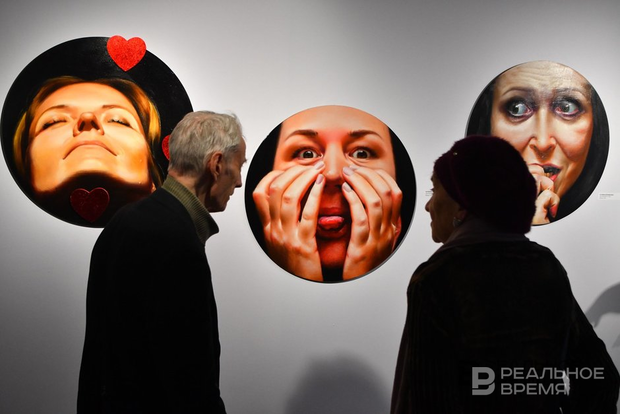
Is this the reason why we cannot experience joy?
As a rule, the state “I stopped feeling joy” is a consequence of two moments. The first is the disruption of the balance between the attempt of feeling joy and the recovery period. If you don’t give neurotransmitters time to recover, you simply have nothing to feel joy with. The second is when there is a failure in the endocrine system, its disorder or imbalance.
Does it mean that apathetic states when accomplishments seem to happen but this doesn’t bring joy for you mean it is likely to be a disorder?
Not necessarily. It is likely you simply overloaded yourself. You don’t give yourself time to rest and recover. You spend too much to work because now we need some rest like never before. And we do not know how to rest.
It is kind of a vicious circle. You constantly work for some accomplishments to get overachievements, as a result you end up in a state when you cannot enjoy it.
Yes, but who needs these overachievements? We follow a dream, a picture. But in fact our body needs to sleep for eight hours a day. Moreover, the body needs to live to the rhythm of the planet: for instance, to sleep in winter and work in summer. Circadian rhythms have been ruling our planet for 40 million years. This is what we have been adapted to since the beginning. What are we doing? The opposite. We don’t go to bed after the sunset, we do not get up at the dawn. We have our internal clock off course. Our organisms are adapted to the rhythm of the city. It is not physiological. This is why we get what we get.
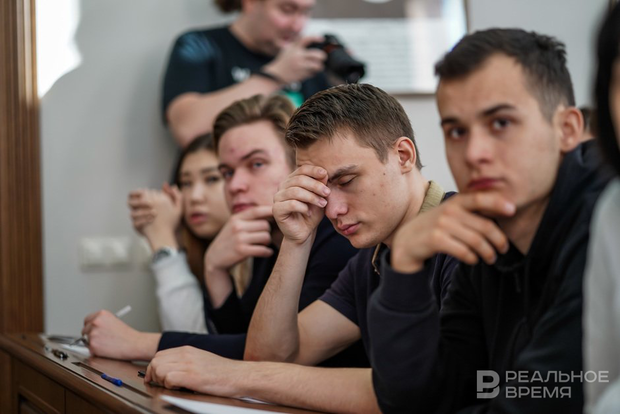
“It is more physiological for us not to feel any emotions”
Our organism has antagonist neurotransmitters. When meeting, they neutralise each other. So three hormones we suffer from most — adrenalin, noradrenalin and cortisol — are neutralised by dopamine, serotonin and endorphin. This means if the adrenalin level in the blood is off the charts to feel joy, a triple dose of endorphin is needed. And this doesn’t happen.
So how to feel it?
The easiest way is to stop pumping yourself up with adrenalin.
But it is our daily urban work-related stress.
Yes, but do you know how did humans live in the conditions close to natural ones? It was more physiological not to feel any emotions. The most physiological lifestyle is when you constantly have the same state. It is such a quiet nuisance, in a state of absolute quietness. Moreover, non-stop quietness: when you can do something but not at the peak because a recovery is needed after any peak, time to restore. But we are bored in such a regime, our focus is on getting emotions.
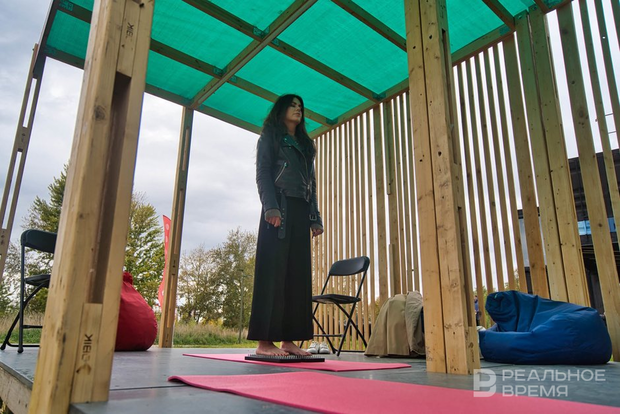
Some people are chaotic, it is such a genotype. They need constant peaks and excitement, their organism works this way, they constantly need to achieve and overcome something. As a rule, they are aware of this peculiarity. This is why they choose emotionally rich jobs. For instance, event managers. And they know that now they gave it all, then they will have two weeks of holiday when they will do nothing but say: “I had an event two weeks ago, I am so tired.” Indeed, they are tired. They are sprinters, this is their nature. There is a gene that is responsible for such instantaneous activation. But they cannot live in such a mode for a long time, they aren’t long-distance players. They can get ready, run, receive their dose of pleasure from a beautifully organised event but then hide in a hole and it is better not to touch them — they need a recovery mode. But if you task the same person with making another event right away, you get an absolutely psychopathic individual. They run amok, everything irritates them.
Because we have not only arousing neurotransmitters but also ihibitory neurotransmitters that calm the nervous system down. It is seen in kids well. If they start to react sharply, cry, their mum knows that the kid starts to get tired, time to have a nap. But you got distracted and didn’t take the kid to bed on time, then you get a couple of hours of absolutely abnormal behaviour because the kid is in a state of protective inhibition, but inhibitory neurotransmitters are out of stock. The kid cannot really calm down but there is a lot of adrenalin in the blood because it is necessary to somehow keep the organism in a working mode, and only adrenalin allows doing this. And a kid wants to sleep very much in a state of extreme inhibition. The kid is also very tired but cannot fall asleep physically.
And we, adults, also experience such states from time to time. When the organism is already exhausted but you cannot fall asleep because you are in protective inhibition. Your organism is knackered, but you cannot fall asleep.
Now many consultants recommend abstract yourself from what happens to you, manage your state. According to them, realising their state, people should be able to keep calm even if they are surrounded by crazy stress. Is it possible? Or are we unable to control this physiological system fully?
We in general cannot control it, either the level of hormones or the level of neurotransmitters in the blood. Another thing is the term “abstract.” I would call it differently: switch to the body, the reality you have here and now. Go from fantasies and thoughts your own brain creates to real life. Focus on yourself. Feel your own organism.
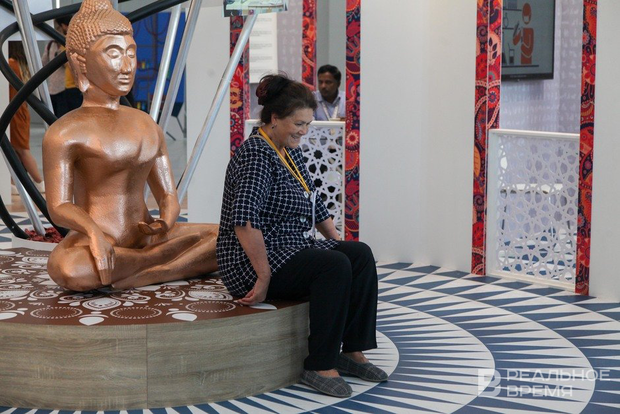
Because besides the sight, hearing and the brain, we have many other receptors that also give signals about the state of the environment. But for some reason we prefer turning them off, like volume control knobs. Our brain has a system: if some parameter doesn’t change for a long time, we make it silent. We are still aware of it but the meaning of this information will be tiny. But if something bright or new and unexpected appeared against this background, the meaning suddenly goes up. For example, if you constantly sit in one room, we stop feeling the temperature. But as soon as it suddenly decreases or increases, we immediately notice it — the brain responds to the change in the signal.
We even may not understand what is happening at this moment, but our body will and react. However, now humans stop hearing their own body, they are learning not to hear it artificially. We focus our attention on our fantasies, dreams, sometimes unattainable goals and tell the body: “Just hold on, now we will be working for some another four hours.”
“Our children who have endless clubs and serious overloud are would-be workaholics”
Or we make schoolchildren to it. Look at them: they study from 8 am to 3 pm. Then they are back home at best and in the worst-case scenario go to additional classes, to the same regime of receiving information (maybe except for sports clubs where they have to move — at least they can somehow focus on their body or music classes). And they have nothing to think about with: they ran out of their stock of neurotransmitters at school, moreover, during the first lesson.

But this is yet little for us: we make them sit with us in the evening and do homework. And it is daily torture of every decent parent who dreams about being the right mum. Because the primary school is hell for a parent. Not because their kids are bad but because they cannot tell themselves: “I am a bad mum today. We will not do homework but better get popcorn and watch a film.” The child is tired, physically exhausted, cannot do anymore. They need to rest and go to bed at 9 pm. But no, we will be doing homework together the whole evening.
So what to do?
Give up on this homework. It will be more beneficial. Or try to teach the kid to do homework on his or her own at daytime at the beginning, in the after-school club. And control only their presence. If done — good job, no matter how well. If not done — what can we do.
But there seems to be no homework in year one.
Does it matter? Everything is postponed, that’s it. Not the correctness of the homework done is the thing. The kid learns how to perform a new function with it, this is the most important things, not A marks and any marks. Kindergartens don’t have homework.
We do not hear our organism and do not know how to stop on our own. And our children who have endless clubs and serious overload are highly likely would-be workaholics. At a certain point they will blow a gasket and say they are going to do nothing or will sweat it out, in three workplaces. They will feel uncomfortable with one job. Or they will have one but 12-18 hours a day. They will deliberately look for such hard labour because another regime will be scary and not habitual for them.
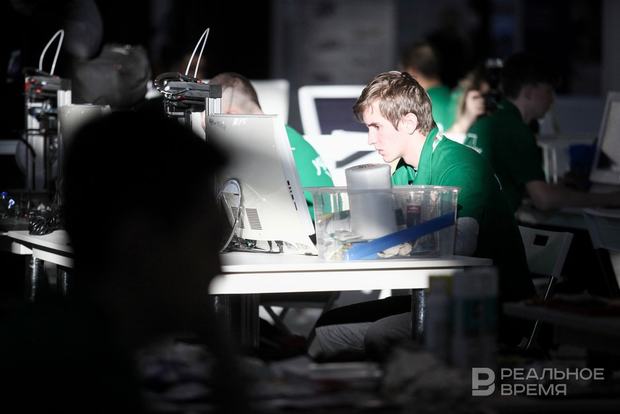
But does this also make them happy to a certain extent? Because such people feel they are in demand.
Yes, but they corner themselves. Body resources are limited. If our average lifespan were 35-40 years, this strategy would be absolutely justified. Because peasants in tsarist Russia, for instance, worked a lot. They needed energy, resources and they were workaholics too. In the last 100 years, our lifespan has doubled. Now we live to see 80 years on average. And sprinter qualities are harmful for a long distance. This is why we get all types of emotional burnouts because at a moment our body says: “That’s it, I cannot anymore. You have pumped up so much adrenalin in that the cells decided it is time for all of them to die, they depleted the reserves.”
“The first sign we are overloaded is when it is hard for us to wake up in the morning”
Are there any red flags to understand in advance I am taking this road? Is the absence of joy such a signal?
Yes. First, we stop feeling bright emotions. But as we already found out, one shouldn’t pursue them in general. But the first most important signal is that we are overloaded is when it is hard for us to wake up in the morning.
A group of proteins that is at lows and highs during the day is responsible for the regulation of the circadian rhythm. When we are awake, our production genes are on, the protein is synthesised and is released into the blood. As soon as its level in the blood reaches the highest allowed concentration, the organism gets a signal: time to go down. The more it is accumulated, the more tired we feel — and at some moment we fall asleep. While we sleep, the concentration of protein decreases, it breaks and is eliminated. Ideally, in the morning when the protein content is almost zero, we wake up and are ready to work.
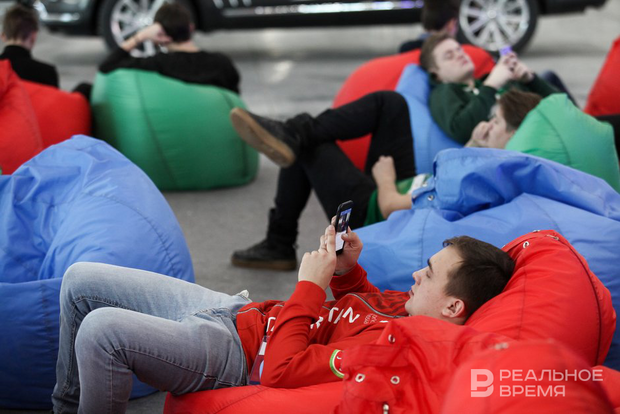
If you woke up knackered and sleepy in the morning, it means all this protein wasn’t processed. Neither was adrenalin that is produced when we are awake at the same time to keep all systems of the organism in working mode. So you woke up with a half of the concentration of these things. While you have to work during the whole day, which means the organism will add a daily dose to it. Now you will need more time to rest to reduce the concentration of these substances in the blood. You are familiar with the outcome — chronic stress. We accumulate it and do not know what to do with it. But the organism does: it simply falls sick to decrease it.
It doesn’t have resources, the immune system is trying to chaotically process dead cells, stops controlling gates for infections, and that’s it, we are sick. Those who work in a very tense regime sometimes start to have a high temperature all of a sudden reaching almost 40 degrees in the evening. There is no other symptom. It is the organism shouting: “Hey! I will stop you if you don’t want to.” And you are dreamily turned off from the working process for a few days, recover and it seems you are ready to work again.
But the disease in this case is an alarm. And then if you keep working hard in the same regime, you will get a wide range of diseases, through tumours because the organism is exhausted, its safety margin is big but limited.
We have a question from social media about sleep. We are asked if it is harmful to hit the snooze button in the mornings several times? How to get up if you don’t want to?
My first advice is to find a job where you won’t have to get up at 7 am. You put these frames yourself. Of course, I understand this is utopia in modern conditions. This is why my second advice will be obvious too. If you don’t want to get up, it means you should go to bed earlier.
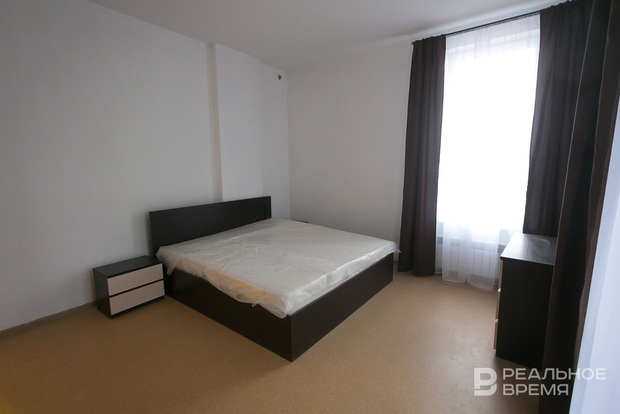
There is another moment that can help you get up easily. If you wake in the slow-wave sleep, the organism won’t be ready for it yet. It means you need to try to set the alarm thirty minutes earlier or later (if your schedule permits it) to wake up in the REM cycle when it will be much easier to wake up. Now many smart watches have such options.
But if you cannot get up in the morning because of overload and tiredness but you have to, okay, I personally set three alarms. I recommend choosing different sounds.
“I dream that schools will have classes for night owls and early birds”
Is the story about early birds and night owls true?
Yes. It is physiologically confirmed too. By the way, at a younger age, natural circadian rhythms are brighter, and the difference between night owls and early birds is more distinct. They work differently physiologically. I dream that schools will have classes for night owls and early birds and they will have different timetables because night owls can easily start an hour later, moreover, with subjects that will provide a soft start (music, singing, painting). While early birds feel perfectly from 7 am and are ready to absorb maths by 8. They don’t need to gain speed. But we still divide classes in letters...
But a person can be both a night owl and an early bird throughout one’s life.
Then they get used to the unusual regime. Tiredness is accumulated. With age, a person becomes an early bird, it becomes easier to get up in the morning.
Why do the elderly get up earlier?
Of course, some pensioners love to sleep much. But according to my observations people get tired by the evening by 60s — they lack energy and they go to sleep earlier. And if they went to bed earlier, it means they wake up earlier. The physical resource goes down. Early sleep — quicker recovery.

In general I have read about as few as six different patterns of combination of sleep and awakening: six times of 15 minutes a day, an hour every four hours. Scientists have done experiments on themselves.
What did they find out?
Just that a person in theory can choose an individual sleeping pattern. It is in general very important to pick an individual regime. And it is hard. First you learn how to feel yourself, know how to distinguish when you are tired, when you get angry, learn how to name emotions, not to lie to yourself. Then you find you after observing yourself: “Okay, I am a sprinter.” By the way, the Darwin Museum in Moscow has a master class that allows determining what behavioural strategy you have according to one gene in DNA — a sprinter or a marathon runner.
It seems to me everybody understood by 30 if they are a sprinter or a marathon runner.
Yes. But anybody in doubt can find it out for sure — now through a genetic test for special regulatory protein. Then you adapt your life to it: choose an activity, a job, the schedule, format that corresponds to your state more effectively. And then you aren’t in dissonance with your life. You are happy with everything and everything is good.